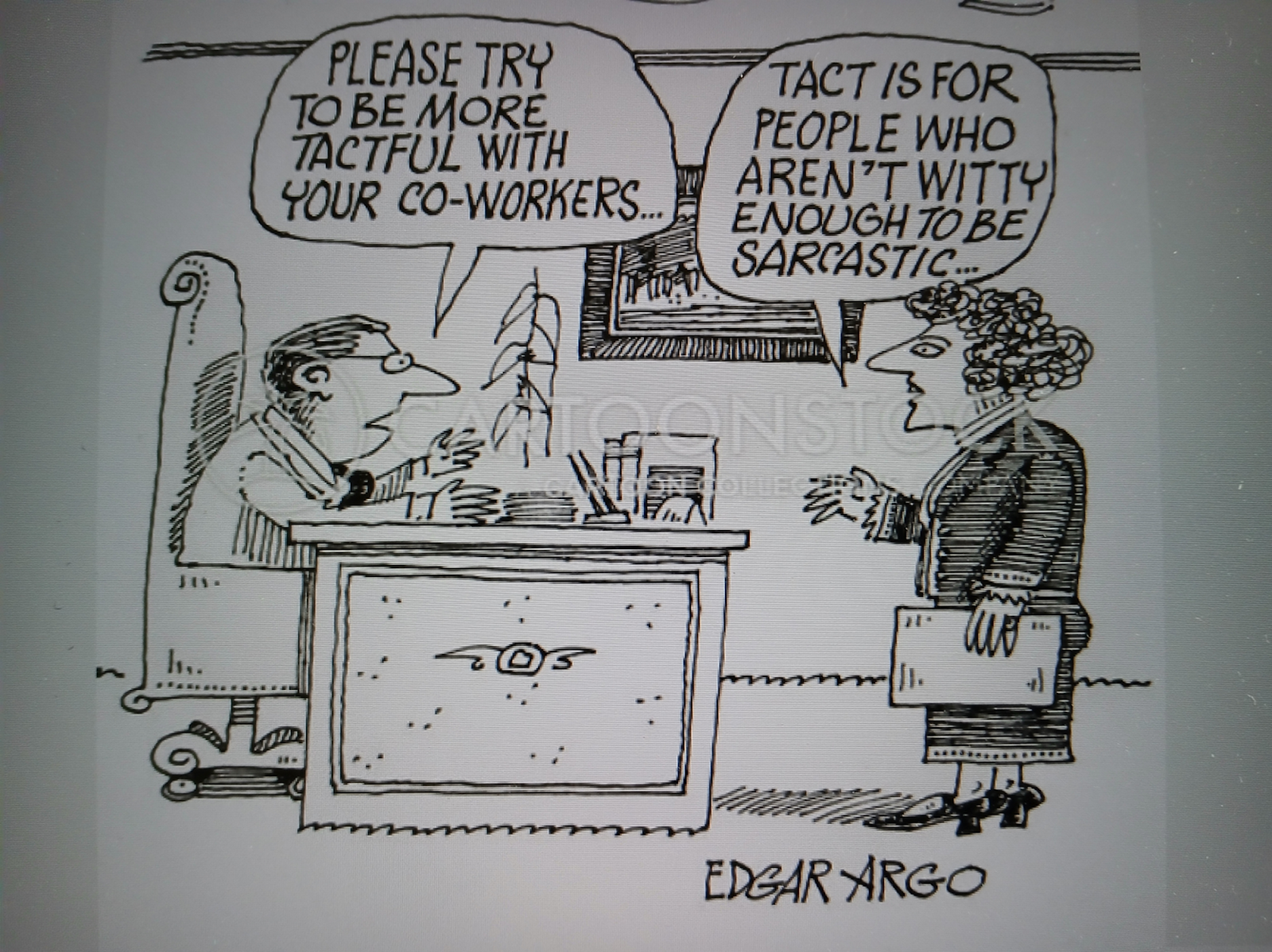NOTE: The contents herein is the culminating sequel to my earlier posting on EFFICACY Of MODEST WISDOM. The word TACT (in this article) actually sums up the elements manifesting the combination of modesty and wisdom as the enigmatic leadership acumen.
I would describe tact as a careful skill in dealing with others or with difficult issues. This elaboration includes diplomacy. Now, let’s view other sourced definitions:
* Ability to avoid upsetting or offending people by being careful not to say or do things that would unnecessarily hurt their feelings (Collins Dictionary).
* Using judgement to be sensitive to the thoughts, needs and beliefs of others. E.G. if someone has recently received bad news, you’ll need to take it into account when talking with him (https://www.onlinecourseaustralia.edu.au).
A person who exudes efficacious tact for handling issues relating to counterparties manifests positive Intelligent Quotient (IQ) and Emotional Quotient (EQ), the fundaments for wisdom. In essence, tact is about the capability to deal with other people in a composed, non-condescending, diplomatic, sometimes empathetic manner….but yet assertive to reap the desired responses. It is a skill honed by committed efforts to assimilate this characteristic through sufficient exposure to relevant training and work situations.
A tactful protagonist does not necessarily reflect softness in discourse style, neither being too accommodative to recalcitrants who refuse to accept plausible reasoning. Being empathetic to understand the concerns of a counterparty can help to assert the right messge across without creating conflict or animosity. The efficacious tactful approach brings in the right results – that’s demonstration of IQ and EQ.
Here are some ways to enhance tact in our communication demeanour:
* Think before we speak. * Know when and where to talk. * Choose our words wisely. * Mind our body language. * Manage our emotions. (source: https://www.ine.com)
Dr. Donna Thomas-Rodgers (who developed The Theory of Personal Accountability) shares her pointers for the deployment of tact:
* Be polite and respectful. For example, wearing a baseball cap in church is tactless. * Seek to understand, then be understood. * Actively listen when others are talking to you. * Ask effective questions. * Speak calmly. * Solicit feedback. * Be objective and gather facts.
Tactful leaders apply a structured process to win the cohesive support of subordinates and peers. Allow me to share a method in sequential order which I picked up from a leadership programme, as follows:
(1) Structured Communication to draw in…..> (2) Willing Cooperation (from subordinates and peers) to participate in…..> (3) Committed Coordination (by all team members), catering for…..> (4) Interactive Fellowship (on the progress trail to-date) to achieve…..> (5) One Accord toward attainment of the desired objectives.
The key idea of the above cited process is to attain the ultimate ONE-VISION incorporating the US FACTOR!
I conclude this writeup by highlighting a caveat, that deploying tact in interaction does not imply giving in to a recalcitrant counterparty’s inflexible demeanour and disposition. Invariably every organisation may house a few hardcore inviduals. These are the ones a prudent leader has to stand steadfast when dealing with them. If needed so, the leader must plan the best way to resolve the hindrances – by managing out subordinates who are utter deadwoods; and to those who are willing but yet unaccustomed to their respective present role, sincere efforts should be made to re-assign them to more fitting responsibilities via encouragement, not coercion.
Remember: TACT relates to WISDOM, resulted by efforts to groom oneself for enhancement of IQ and EQ.
Quote by revered historical Greek philosopher Socrates……“ I cannot teach anybody anything. I can only make them think.“ Yes, inspiring another person to think proactively and reflect positively is sheer tact.
Allow me to end with a humorous cartoon regarding tact.







